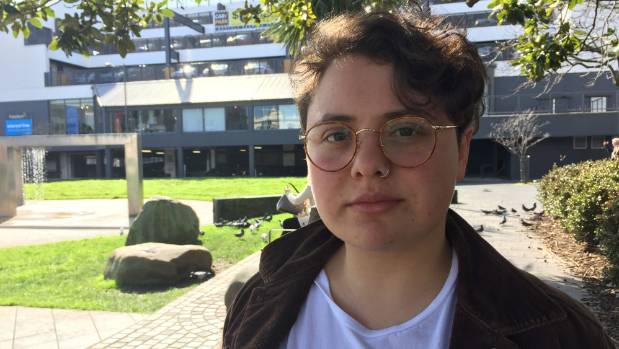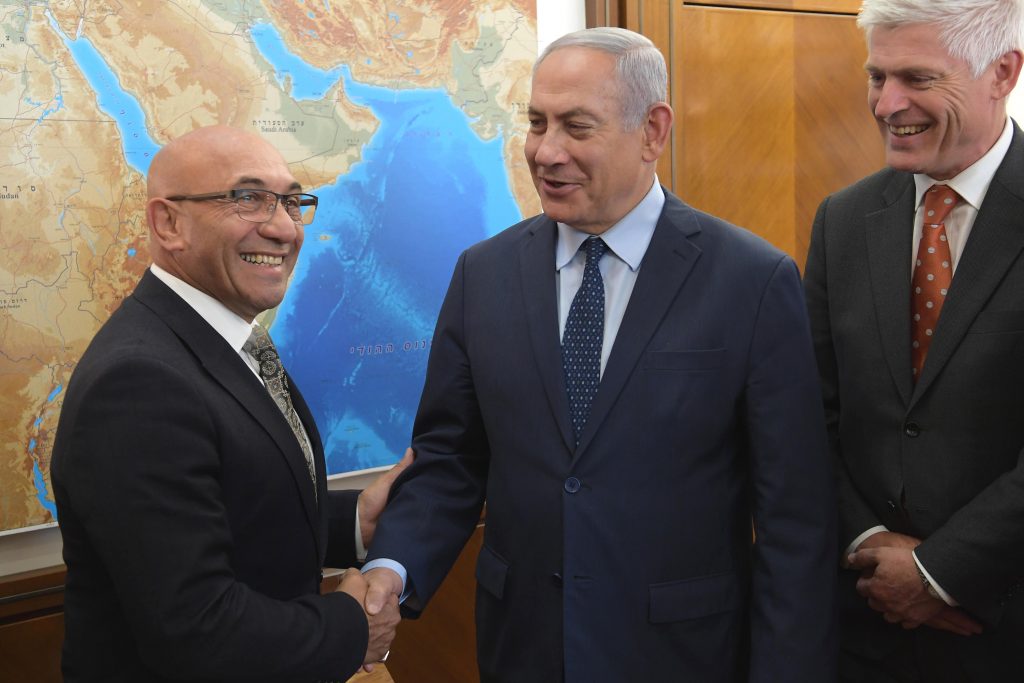Australia/Israel Review
AIR New Zealand: Anti-Zionism and Antisemitism in New Zealand
Mar 1, 2019 | Miriam Bell

Anti-Zionism as a new form of antisemitism has long been an issue of serious concern for Jewish communities around the world. But, in the wake of successive tweets from US Congresswoman Ilhan Omar which suggested that the American Israel Public Affairs Committee pays politicians to be pro-Israel, it has become a topic du jour.
That’s because many among those who rushed to defend Omar made extensive use of the tired “I’m not antisemitic, I’m just anti-Zionist” argument. Disturbingly, among those who ran that argument were some Jewish people on the far left. This highlights the growing global trend of very small numbers of very vocal, militantly left, Jewish people who proudly declare themselves to be anti-Zionist getting greatly outsized public attention.
Despite its small and relatively isolated community, New Zealand has not been immune from this trend in recent years.
Perhaps the most notable example was the furore over Kiwi pop superstar Lorde’s announcement, and then cancellation, of a concert in Tel Aviv back in 2017. Lorde’s change of heart appeared to come about largely at the urging of two young New Zealand women, one of whom – Justine Sachs – is both Jewish and staunchly anti-Zionist.
Sachs runs a Facebook group called “Dayenu: New Zealand Jews Against Occupation” and is heavily involved with the Boycott Divestment and Sanctions movement. Her “success” with Lorde gained her widespread attention and a wider platform for her views.
Just last month, The Pantograph Punch, a respected local arts and culture journal, published Sachs’ latest effort – an essay entitled “Oh you foolish little Zionists.” Issues with the content aside, what was most disturbing about Sachs’ words were that they are presented as being representative of a large part of New Zealand’s Jewish community.
This is simply not true.
New Zealand’s Jewish community is, in fact, a diverse one and one which is home to a plurality of voices and opinions. There are many people in it who do not support the current Israeli government or their policies. That is as it should be.
But most members of the New Zealand Jewish community are all too well aware of how complex the issues surrounding Israel are. While they may hold different views about various issues affecting Israel, the overwhelming majority believe that Israel should exist, that it is critical that it does and that demanding its destruction usually does qualify as antisemitism.

NZ Defence Minister Ron Mark (left) in Jerusalem
This was reinforced by the response to a recent opinion piece published in the New Zealand Herald. Written by two Jewish New Zealanders, Fred Albert and Marilyn Garson, it went under the headline “We are anti-Zionist Jews, we are not anti-Semitic”. It came about in response to New Zealand Defence Minister Ron Mark’s recent meeting with Israeli Prime Minister Benjamin Netanyahu.
During that meeting, Netanyahu asked Mark that New Zealand include anti-Zionism in the definition of antisemitism that it subscribes to. The authors of the article were outraged by this, and by the suggestion that their anti-Zionist stance might be considered antisemitic. They implied once again that their views were widely shared in the Jewish community.
At the same time, the Herald also published a reasoned, yet passionate, piece by Zionist Federation president Rob Berg, which argued that it is generally antisemitic to oppose Israel’s right to exist. Subsequently, a number of letters to the editor were published which emphasised that Albert and Garson’s views were not representative of the Jewish community.
Likewise, on Jewish community Facebook groups and email news lists, it was abundantly obvious that most of the community was behind Berg’s take on the situation.
Heartening as the Jewish community’s unity on this was, the broader New Zealand community has not generally proven as savvy on this issue.
Many people, especially those active on social media, listen to those who are loudest or have the highest profile.
That means there is a danger that the vocal minority’s view becomes accepted as not only representative of much of the Jewish community as a whole, but as the “correct” version of some extremely complicated geopolitical issues. There is a danger that it may become “acceptable” to be anti-Zionist, because it’s “not” antisemitic.
In New Zealand we, in fact, have a recent precedent of a militant minority’s view severely disrupting an apparently united community.
Auckland’s LGBT community recently imploded over its annual Pride Parade. A small group opposed to the current criminal justice system objected to the NZ Police marching in the parade in their uniforms. That group (PAPA) managed to build the issue to the point where the LGBT community fractured spectacularly.
One of the reasons they succeeded was that they were backed by a coalition of left-wing activist groups who pop up in protests against particular issues, including the Palestinian cause. Prominent among them is the Unite union. Unite is led by Mike Treen, who last year joined the “Freedom Flotilla” to Gaza and claimed he was treated brutally by the IDF after being detained.
This is the trendy concept of “intersectionality” at work. It is a movement which is staunchly anti-Zionist and, particularly when anti-Zionist Jews are involved, gives cover to those espousing views which are antisemitic.
Tags: Anti-Zionism, Antisemitism, Israel, New Zealand






